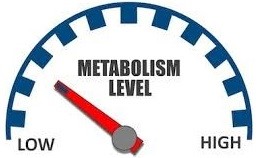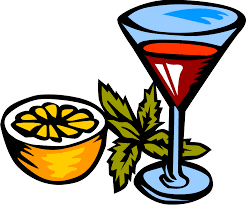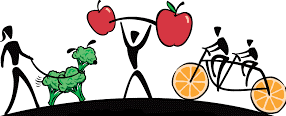Ilana Katz MS, RD, CSSD
The difference in energy expenditure between a day off exercise and even an easy exercise day can be enormous. Making small changes even on a daily basis during this time does help compensate for variance in activity factor and caloric expenditure. 
Remain Accountable to Optimal Weight. Being accountable to weight management during this time may seem unfestive, but that is just the point – do not use the “holiday season” as an all-out excuse. After all, it’s a holiday, not a holimonth.
Plan ahead. Willpower requires boundaries. Create your own boundaries before you even head out the door to temptation. Be strong, give yourself some tough love. Fuzzy lines like “I will stop eating when I am full” does not work. Your boundaries have to be precise and measurable. For example: I will not eat anything fried, I will only drink 4 oz of alcohol.
Use visualization. Remember last year, when you walked away from a party feeling uncomfortably full and regretful, anticipating those extra pounds you now have to burn off in preseason. Visualize leaving the party feeling proud and liberated about your choices. Visualize preseason training days at your optimal training weight.
Journal
Commit to keeping a food journal and an exercise journal (and for many, a parallel emotional journal is a great bonus). By writing down everything you eat and drink, not only are you self accountable, but you become aware of the hidden calories and fat grams creeping in. Journaling both food and exercise helps you monitor calories in against calories burned. This helps nip over indulgence in the bud. 
Keep Metabolism Fueled
Do not go to seasonal gatherings hungry. Hunger is a strong physiological drive and thus giving in to temptation is highly likely when your brain is not fed. Metabolism is raised when you eat every 2 to 3 hours. Keep up with this philosophy even through the season. Do not save calories for a big festive meal. Have a snack or light meal and drink plenty of water before facing a huge buffet. Having a full stomach aids in appetite suppression.
Physical Activity
Even with a good nutrition plan, some wiggle room is necessary. For many, the winter months are considered a time off from exercise. Even if its minimal compared to when your exercise is a focus, just some physical activity will help burn off some of those extra calories.. If you are completely off going to the gym, or outdoor activities, try speed shopping. Lace up your sneakers and move. Before you know it your shopping will be done. If your best laid plans take a hit, remember that it takes at least 45 minutes of high intensity cardio to burn off a small slice of pecan pie.
Put Alcohol into Perspective
Alcohol goes hand in hand with celebrations. Do not forget that alcohol adds calories, in fact per gram, it has more calories than carbohydrates and protein. A 12 oz. beer is equal to 150 calories. A 5 oz. glass of wine, 100 calories, a 12 oz. wine cooler is around 180 calories, and spirits at 80-proof is over 100 calories per ounce and that is minus the drink mixers. One drink a day adds over 1000 calories per week. During the holiday season alone, this means at least 3 extra pounds of fat.
Furthermore, it is not just the caloric density and sugars of alcohol that need to be accounted for. Although Alcohol is considered a carbohydrate, it metabolizes quite differently than food carbohydrates. It is converted to fatty acids with a higher potential of fat storage rather than being converted to glucose, like regular carbohydrates are. In simple terminology, alcohol puts efficient fat burning on hold. If your goal off season goal is to stay lean, stay off the booze. One way to nip the unwanted fat gain in the bud – nominate yourself to be a designated driver.
Compromise
Never give up your cultural traditions or social aspirations in lieu of your body composition goals. In other words, do not stay away from the party in fear of resisting temptation. Plan out the compromise and go to the party regardless. Remember the adage: The party does not have to be in your mouth. Staying away from temptation altogether may cause you to feel intensely deprived later down the line. Emotional eating is more difficult to control than a few slip ups at holiday parties. As a host, you can always give the tempting leftovers to guests or better yet, take them to homeless shelters. 


